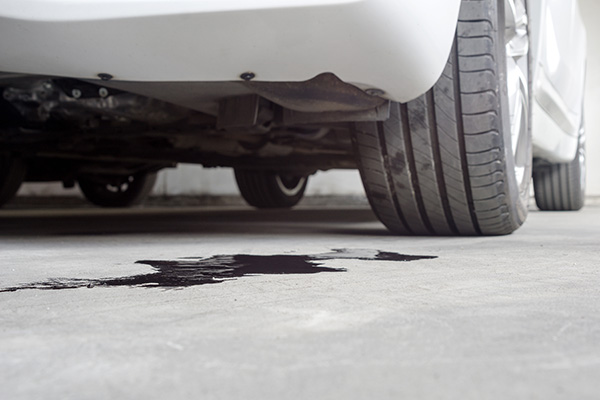
You step out of your house, ready to start your day, only to find a puddle of mysterious fluid under your car. Fluid leaks can be a source of frustration and anxiety for car owners, often signaling underlying issues that require immediate attention. That's why we will take a look at a few of the most common reasons behind fluid leaks and how to avoid them.
Identifying Common Fluid Leaks
Fluid leaks can originate from various components within your car's engine and drivetrain, each with distinct characteristics and implications. Among the most common types of fluid leaks are:
1. Engine Oil Leaks
An engine oil leak is typically identified by dark, slick spots beneath the engine area or visible oil drips on the ground. Ignoring engine oil leaks can lead to decreased lubrication, increased engine wear, and potential mechanical failures.
2. Coolant Leaks
Coolant, also known as antifreeze, regulates engine temperature by dissipating heat generated during combustion. Coolant leaks often manifest as brightly colored puddles beneath the radiator or along coolant hoses. Failure to address coolant leaks can result in engine overheating, leading to costly repairs and engine damage.
3. Transmission Fluid Leaks
Transmission fluid facilitates smooth gear shifts and optimal transmission performance. Leaking transmission fluid may appear as red or brown puddles beneath the transmission or along transmission lines. Neglecting transmission fluid leaks can result in transmission slippage, gear engagement issues, and eventual transmission failure.
Preventing Fluid Leaks
While some fluid leaks may be inevitable due to wear and tear, proactive maintenance practices can significantly reduce the likelihood of leaks and prolong your car's lifespan. Consider the following tips to prevent fluid leaks:
Regular Inspections
Schedule routine inspections with a qualified mechanic to identify potential leaks early on and address them promptly.
Fluid Level Checks
Monitor fluid levels regularly and top up as needed to ensure proper lubrication and cooling functions.
Timely Repairs
Address any signs of fluid leaks immediately to prevent further damage and costly repairs down the line.
Quality Fluids
Use high-quality fluids your manufacturer recommends to maintain optimal performance and compatibility.
Proper Maintenance
To keep your car in top condition, adhere to recommended maintenance schedules for oil changes, coolant flushes, and transmission services.
You Might Also Ask:
How can I determine the source of a fluid leak in my car?
Identifying the color, location, and odor of the leaked fluid can provide clues to its origin, but for an accurate diagnosis, it is recommended that you consult a professional mechanic.
Are fluid leaks always indicative of serious mechanical issues?
While some fluid leaks may result from minor issues like loose connections or worn seals, others may signal more severe problems requiring immediate attention to prevent further damage.
Can I use additives or sealants to fix fluid leaks in my car?
While some products claim to temporarily stop leaks, they are not a permanent solution and may damage your car's components.
Have you noticed any leaks? Don't worry! Visit RM Automotive, and our team of skilled mechanics will quickly resolve the issue and get you back on the road as soon as possible.